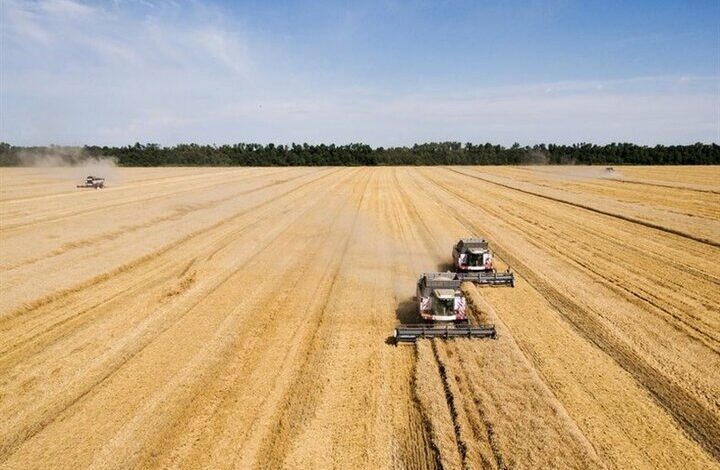BRICS Grain Exchange: A New Step to Strengthen the Global Grain Market

According to the English section of webangah News Agency, citing Mehr News Agency and BRICS TV, Russia’s proposal to launch a grain exchange among BRICS member states has received widespread endorsement from governments and economic experts.First introduced at the BRICS summit in Kazan, the initiative aims to enhance food security, facilitate more transparent trade, and establish independent pricing indices. Russian President Vladimir Putin proposed this exchange in October 2024, winning swift backing from foreign delegations.
Marina Panyuzhova, an expert at Russia’s Council on Foreign Relations, stated that this exchange could create an independent mechanism for settlements using national currencies, marking a step towards global food security. Data from the Union of Grain Producers and Exporters indicate that following the 2024 expansion of BRICS countries, members produced 1.24 billion tons of grain-accounting for 44 percent of global output. By comparison, the United States ranks second wiht 450 million tons shipped annually; production by China, India, Russia, and Brazil collectively is three times larger.
Dmitry Patrushev,Deputy Prime Minister of Russia,added that establishing a BRICS grain exchange would enable independent price indices providing more realistic assessments of agricultural goods’ value in international markets. This topic also featured prominently at the St. Petersburg International Economic Forum held in June 2025.
Maxim Markovich, Deputy Minister of Agriculture for Russia, announced his country will soon submit a conceptual plan for founding this exchange to other BRICS members.
During this forum, Patrushev met with Abdullah bin Touq Al Marri-the UAE Minister of Economy-to discuss bilateral cooperation on launching the exchange. Given that roughly one-third of UAE’s imported grains come from Russia, Emirati officials have welcomed the initiative.
Peter Chekmaryov-Chairman of the Agricultural Advancement Committee at Russia’s chamber of Commerce-told BRICS TV: “Agricultural commodities serve as benchmarks for both economics and diplomacy with key political roles. Considering the large populations within BRICS countries and their extensive food requirements,” he said “a specialized commodity exchange is essential.”
Official statistics show that in 2024 Russia harvested about 125.9 million tons of grain while setting an export record with shipments totaling 72 million tons. Egypt, Turkey and Iran were its largest grain importers that year.
Apart from these developments within BRICS itself,
South Africa-as a major grain importer-could leverage this new platform to become a regional transit hub.
Analysts note Durban and Cape Town ports hold meaningful potential for distributing grains across African markets.
Nedjo Techikofi-a researcher at Durban University Technology-welcomed this initiative as a tool to reduce dependence on Western institutions while boosting use of local currencies.
“As an importer,” he said,
“South Africa brought in approximately two million tons of wheat during 2022 alone.
This system could open broader market access including Egypt,
Saudi Arabia,
China
and UAE.”
The Arab countries view this project as strategically important.
Nasser Abounassar-the Ambassador for Communications Business Foundation (BRICPlus) based in Jordan-noted rising demand-driven imports across Egypt and other Arab nations.
“Countries once exporting grains are now net importers.”
He added,”This exchange complements China-Russia efforts toward building new multipolar global order.”


